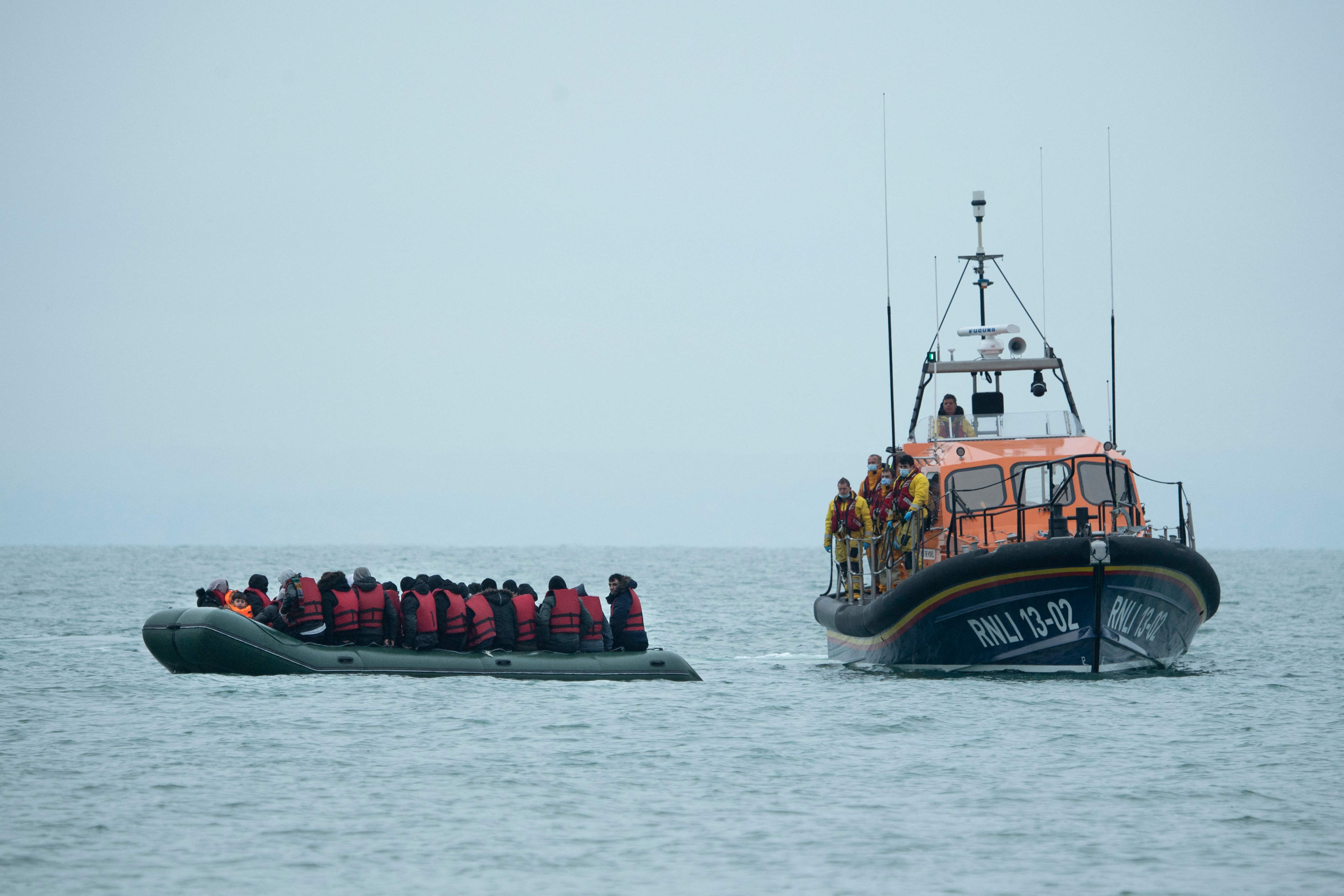Inquiry vows to find truth about what happened on day of deadliest ever Channel crossing
Sir Ross Cranston said the purpose of the independent probe was to find out the ‘truth’ of what happened

A judge has said there will be “no place for obstruction or foot-dragging” as he opened an inquiry into the Channel’s deadliest migrant crossings tragedy on record.
Sir Ross Cranston said the purpose of the independent probe was to find out the “truth” of what happened when at least 27 people died as an inflatable boat capsized while attempting the journey to the UK on 24 November 2021.
The inquiry chairman, an ex-High Court judge and former solicitor general, told a hearing in London on Wednesday the proceedings would ascertain who the people who died were, and when, where, and in what circumstances they came to their deaths, as well as considering “what lessons can be learnt” from the incident and what recommendations could be made to “reduce the risk of a similar event occurring”.
This will include considering whether suggesting improvements “in search and rescue practice ought to be made for the benefit of all those who use these commercially important waters between France and the United Kingdom”.
Sir Ross, who represented Dudley North as a Labour MP between 1997 and 2005, said: “All of those who engage with our work must do so on the clear understanding that there is but one purpose to the whole exercise, to find out the truth.
“Their task is to assist the inquiry in its investigation and in getting to the truth of what happened.
“To that end, I hope and expect to receive full cooperation from all of those involved in our work.
“There’ll be no place for obstruction or foot-dragging on the part of those whose involvement in the events of 24 November 2021 will be scrutinised.
“This is of vital importance if the work of the inquiry is to proceed in an efficient and effective way.”
A report by the Marine Accident Investigation Branch (MAIB) published in November last year found the capsized boat was “wholly unsuitable and ill-equipped” for the crossing, adding that the UK’s search and rescue response was hampered by the lack of a dedicated aircraft carrying out surveillance.
A pregnant woman and three children were among the victims when a boat which appeared “wholly unsuited to the voyage took on water and was swamped” but there were “remarkably two survivors”, Sir Ross said.
“It was, and remains, the single greatest loss of life occasioned by any of the small boat crossings,” he added.
Describing Channel crossings as a “politically controversial issue with significant humanitarian consequences”, he stressed the focus of the inquiry was not on those “complex issues”, had “no remit to investigate the general problem of small boat crossings” and cannot become “a vehicle for wider debates” as he vowed: “We will not lose sight of the fact that … this was, above all, an immeasurable human tragedy.”
Phillippa Kaufmann KC, who represents one of the survivors of the “catastrophic” incident and the families of 20 of the people who died, said they “wholeheartedly welcome” the opening of the inquiry, adding that it was “something they fought hard to establish” and having “endured a long and painful wait of 27 months” were grateful for the commitment from Sir Ross to carry out a “prompt and thorough investigation”.
She told the hearing: “Our clients have high hopes for this inquiry.
“They hope that it is going to establish the truth as to what happened and how it is that such a significant loss of life occurred. And as part of that, they hope that insofar as they were failed by any authority tasked with planning, search and rescue operations that night in the Channel, that those will be identified and explained.
“And finally, they hope that lessons will be learnt that can help prevent such a terrible loss of life in the future.”
Issuing a call for evidence, the inquiry – which does not have the same legal powers as a statutory probe – will now consider the information it receives before public hearings take place at a later date. But no timescale has yet been set.
Sir Ross said he would report his findings to the transport secretary “as soon as practicable”.
Subscribe to Independent Premium to bookmark this article
Want to bookmark your favourite articles and stories to read or reference later? Start your Independent Premium subscription today.

Join our commenting forum
Join thought-provoking conversations, follow other Independent readers and see their replies